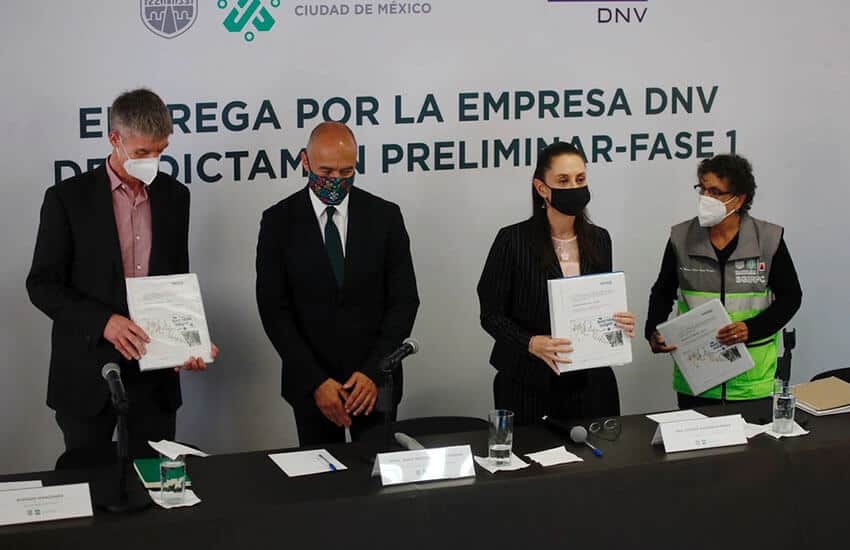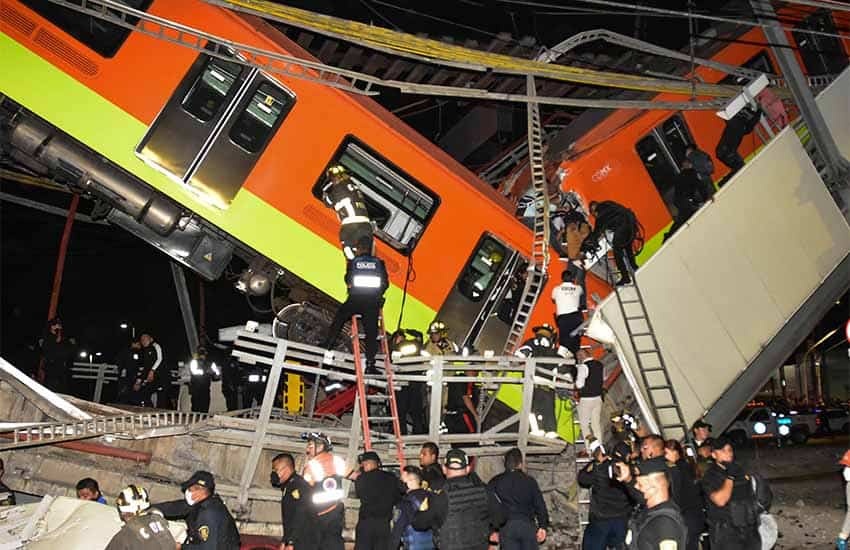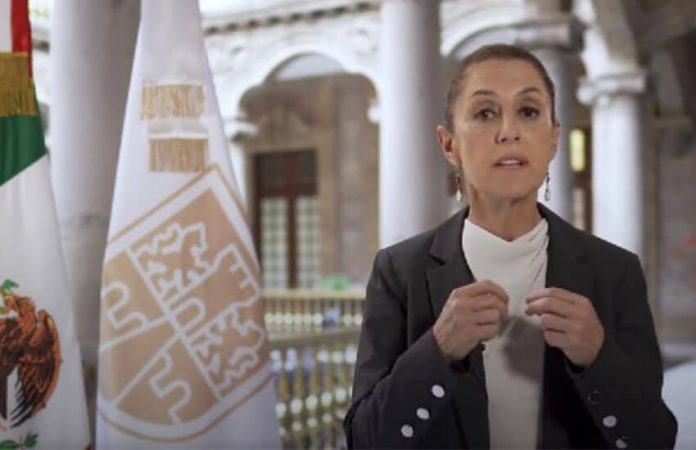The Mexico City government has rejected the final independent report about the causes of the subway accident that claimed the lives of 26 people last year and filed a civil complaint against the company that conducted the investigation.
Mayor Claudia Sheinbaum described the report prepared by Norwegian company DNV as “deficient” and “poorly executed.”
It has “technical problems” and is “biased and false,” she told a press conference Wednesday.
According to government sources cited by the newspaper Reforma, DNV’s final report, which hasn’t been made public, says that oversights, anomalies and irregularities in the maintenance of Line 12 of the Mexico City subway system during the governments led by Sheinbaum and former mayor Miguel Ángel Mancera – in addition to design flaws and shoddy construction work – contributed to the collapse of an overpass on the line on May 3, 2021.
Two cars of a train plunged toward a busy road in the southeastern borough of Tláhuac due to the collapse. In addition to 26 fatalities, over 100 people were injured in the disaster, the worst ever on Mexico City’s subway system. Line 12, the newest line, was built during the 2006–2012 Mexico City government led by Marcelo Ebrard, who is now foreign minister.

Sheinbaum, who had touted DNV as a world leader in the investigation of construction defects, turned against the company earlier this year because it employs a lawyer who prosecuted a 2012 case against President López Obrador, her political mentor.
She claimed that DNV – a risk management and quality assurance company that operates in over 100 countries – was guilty of a conflict of interest as a result of his employment, an accusation the firm has rejected.
The mayor, a leading contender to become the ruling Morena party’s candidate at the 2024 presidential election, said Wednesday that DNV completed an analysis that “doesn’t correspond to what was originally proposed” and has political purposes.
“We’re not going to accept the distortion of reality. … Why choose this lawyer? Why do they completely change their view from the second to the third report?” Sheinbaum said.
She claimed that “there are a lot of interests behind” the report, asserting that DNV has links to the National Action Party (PAN) and Mexicans Against Corruption and Impunity, a nongovernmental organization that has exposed alleged corruption in the federal government.
Sheinbaum previously pledged to disseminate all of DNV’s findings about the Metro disaster but has not yet released the company’s third and final report. However, she said it would be made public in order to show “how it failed to comply with its own methodology.”

The mayor also said that the firm’s contract with the government was being rescinded and threatened to file a criminal complaint against it.
Some opposition party politicians noted that Sheinbaum’s rejection of DNV was incongruent with her previous praise of it.
“Up to a few days ago, @Claudiashein was praising the Norwegian company DNV, which she contracted for the #Line12 technical studies. Now with the report in hand she changed her opinion and even wants to criminalize them because she didn’t like the results. What is the mayor hiding?” PAN national president Marko Cortés wrote on Twitter.
PAN Deputy Jorge Triana described the mayor’s about-face as “grotesque,” while Democratic Revolution Party national president Jesús Zambrano used the colloquial term “ah caray” to express his surprise about Sheinbaum’s new view about a company she hired due to its “international prestige. ”
One year and two days after it occurred, no one has been held accountable for the accident on the so-called Golden Line, although 10 former Mexico City officials face charges.
The line, which runs between Mixcoac in Mexico City’s southwest and Tláhuac in the southeast and has underground and elevated sections, was built by a consortium of companies that included Carlos Slim’s Carso Infrastructure and Construction, French company Alstom and Mexican firm Ingenieros Civiles Asociados.
Slim, Mexico’s richest person, is covering the costs of repairing the line, which remains closed.
With reports from Reforma, El Financiero and El País
